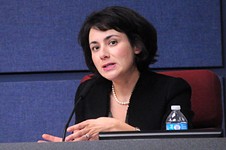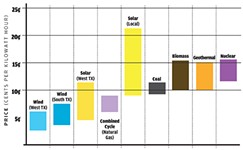Point Austin: Small Victories
Whatever the prospects, the tasks remain the same
By Michael King, Fri., April 4, 2014

On a national and global scale, it is definitely a good news/bad news week.
First, the good news. As of April 1, an estimated 7.1 million people had enrolled in health insurance plans through the exchanges established under the Affordable Care Act. And that's not the whole story. "[A]t least 9.5 million previously uninsured people have gained coverage. Some have done so through marketplaces created by the law, some through other private insurance and others through Medicaid, which has expanded under the law in about half the states." That's a March 30 number from the Los Angeles Times, prior to the last-day surge that pushed the exchange number beyond the Obama Administration's 7 million goal.
Other estimates for the number of previously uninsured who have acquired coverage either directly, through the exchanges, through Medicaid, or through their parents' plans (to age 26) run to 15 million, a significant dent in the 40 million or more U.S. uninsured. It might, of course, have been much more significant, if the law had not been subject to relentless political opposition, not to mention the refusal on the part of a couple dozen Republican governors (including Texas' Rick Perry) to expand Medicaid using mostly federal money.
That makes no sense either in terms of health care or state economics – but the GOP has staked its future on undermining "entitlements" of any kind – meaning the most vulnerable Texans, for partisan reasons, must remain such. But going forward, the GOP must contend with a growing public realization that "Obamacare" – the epithet that became an honorific – whatever its limitations, is a net contribution to the American quality of life. Let them keep attempting to repeal it, and see how that works out.
Getting Warmer
That's the good news. On a much larger scale of bad news was the Monday release of the latest report of the United Nations' Intergovernmental Panel on Climate Change. It has not received many U.S. headlines thus far, partly because of its complexity, but likely also because its medium- and long-term projections are undeniably discouraging. Even in the much-diluted, bureaucratic prose of the consensus-derived report, aimed at providing policymakers with a sense of potential risks threatened by climate change, the growing alarm is undeniable.
Here's a representative passage, on likely economic impacts of climate change: "Throughout the 21st century, climate-change impacts are projected to slow down economic growth, make poverty reduction more difficult, further erode food security, and prolong existing and create new poverty traps, the latter particularly in urban areas and emerging hotspots of hunger."
A few more selected warnings: altered hydrological systems are "affecting water resources in terms of quantity and quality"; many species "have shifted their geographic ranges"; "negative impacts ... on crop yields have been more common than positive impacts"; and more broadly, impacts include "alteration of ecosystems, disruption of food production and water supply, damage to infrastructure and settlements, morbidity and mortality, and consequences for mental health and human well-being."
It's a highly technical report, and I encourage everyone to read at least the "Summary for Policymakers" (www.ipcc.ch). It's not entirely without some small comfort, such as this nugget, in a section on adaptation: "In North America, governments are engaging in incremental adaptation assessment and planning, particularly at the municipal level." Considering the national political gridlock – and the specific resistance of moneyed political interests to any kind of systematic action against global warming – we're going to have to rely, for the present, on "the municipal level" to do what we can to affect both local policy and the longer-term political discussion.
One Step at a Time
It's confounding to try to gather these good news/bad news cycles into the same political universe. On the one hand, the progress on national health care reflects a decades-long U.S. march toward social welfare programs that has been incremental but irrevocable; on the other hand, the ingrained resistance of our political class (taken as a whole) to any comprehensive action on climate protection threatens to make more specific activism seem almost futile. That is, what's the point of health care reform – for example – if our economic systems and institutions are determined to exhaust and destroy the planet?
For our moment, the mantra remains, think globally, act locally. It's routine now for most Austinites to do what we can, on a personal level, to lessen our impact on environmental resources, and our arguments over resources have mostly to do with how to transition our public utilities into a new era of increasing conservation. Beyond that, the current City Council has taken repeated steps to extend that conservation into citywide policy, and the arguments along those lines are generally over how fast is fast enough. (Next week, Council returns to the task of strengthening the city's Climate Protection Plan.) Let's hope that the almost certainly more districted focus of the next Council doesn't lose sight of these larger questions.
That said, I mostly try not to draw worldwide conclusions about the long-term future of humanity. I frankly don't know enough, and my innate skepticism is sufficient to suspect that most of the people who frequently lay claim to those worldwide conclusions don't know enough either. To adapt a Henry James quote on the task of the artist to somewhat different purposes, "We work in the dark – we do what we can – we give what we have." That remains true, whether the week's news is mostly good or mostly bad.
Got something to say on the subject? Send a letter to the editor.










